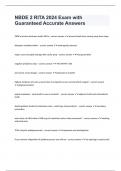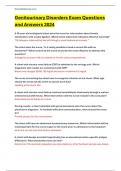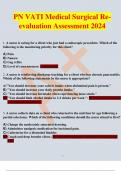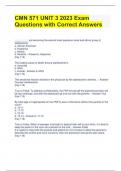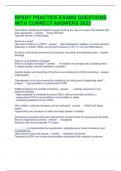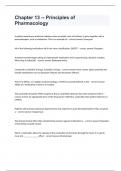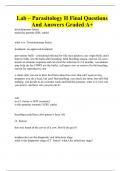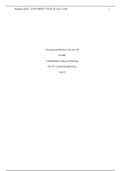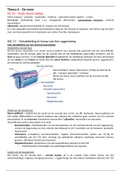University of Twente – 2023/2024
Table of contents
Summary Research Methodology part 1......................................................................................................... 1
Unit 1: What is empirical research?.....................................................................................................................2
Unit 2: What are clear research questions?.........................................................................................................3
Unit 4: Handling data with software R.................................................................................................................6
Unit 5: Conceptualizing constructs.......................................................................................................................7
Unit 6: Operationalization and data collection....................................................................................................8
Unit 7: Measuring constructs using content analysis...........................................................................................9
Unit 8: Two aspects of data quality....................................................................................................................10
Unit 9: Displaying univariate data......................................................................................................................12
Unit 10: Summarizing ratio variables.................................................................................................................12
Unit 11: Distributions and Z-scores.....................................................................................................................13
Unit 23: Normal distribution...............................................................................................................................13
1
, Unit 1: What is empirical research?
Empirical research is a way to gain scientific knowledge by systematically answering empirical
questions.
Systematically: excluding the possibility that other answers are better than the answer we give. This
can be done by following a series of steps/procedures.
Empirical research questions: questions that can only be answered by observation and thinking.
The procedure for answering empirical research questions consists of several steps:
1. Thinking/Theory: we think about possible answers to our questions, by talking to others and
reading literature.
2. Research design: we decide how we can test what we think.
3. Data collection: observing.
4. Data analysis: get the answers/conclusions to our question.
These steps are presented as a cycle, called the wheel of science or the empirical cycle:
1. Question
2. Theory
3. Research design
4. Data collection
5. Data analysis
6. Answer/knowledge
This cycle is not a logistical sequence of steps. It is a logic way to defend conclusions.
Deduction: the process of starting with theory and thinking about how we can test the theory
(research design).
Induction: the process of starting with data and trying to find conclusions (answer knowledge) based
on this data.
Decision-making and doing empirical research are closely connected activities. Doing research is an
inherent part of decision-making.
Six phases in decision-making:
1. Problem definition and analysis: identify, describe, and analyze a problem or opportunity.
2. Design: develop/design options.
3. Multi-criteria analysis/ex ante evaluation: compare options, using criteria from phase 1.
4. Decision-making rules: select an option based on the evaluation.
5. Implementation: act on the decision/implement the decision.
6. Ex post evaluation: monitor and evaluate consequences.
These steps are also presented as a cycle.
Example: suppose you must decide about dinner this evening. (1) You want to invite some friends.
However, you do not want to spend too much time in the kitchen and your budget is limited. (2) You
read look for recipes and write down several possibilities. (3) Simultaneously and sequentially, you
ask yourself “Will my friends like this?’ and “What are the costs of this dinner?’ (4) Based on the
evaluation of the various options you reject a few options, and you make a choice. (5) You then cook
and (6) after dinner you reflect on what went wrong and what went well, either on your own or
together with your friends.
By careful analysis in all phases, you can make better choices and you can more easily defend those
choices.
2

